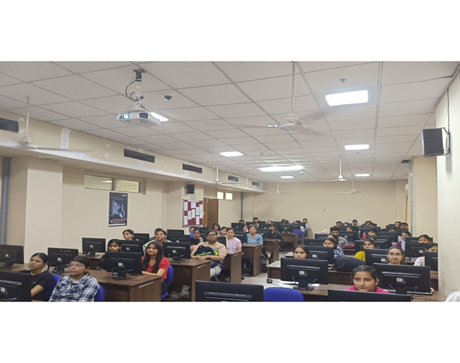In a Computer Science and Applications (CSA) department, teaching pedagogies should be a mix of traditional and modern methods to effectively teach concepts, develop skills, and foster critical thinking. This includes using lectures, problem-based learning, collaborative projects, and active learning strategies. THE CSA department follows different pedagogical approaches are designed to suit various learning styles, subject matters, and educational settings. Here are some key teaching pedagogies.
Lecture-Based Learning: The teacher delivers knowledge through direct instruction. An instructor delivers information to students in a structured format, usually through spoken presentations, slides, or written notes.
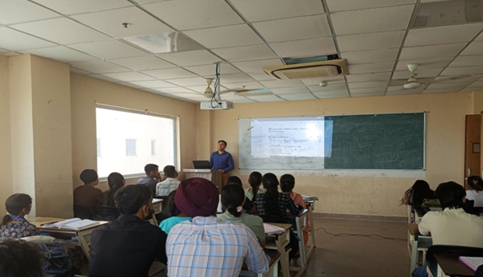
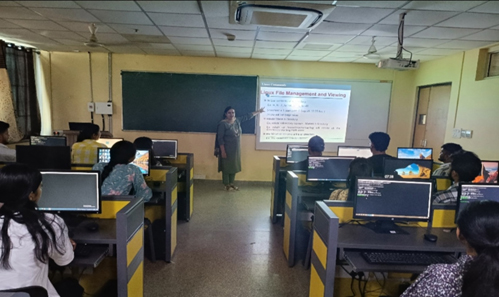
Lecture delivered by faculty through Presentation
Project-Based Learning: The department follows this student-centered pedagogical approach where learning occurs through the execution of projects that solve real-world problems. It is widely used across various domains to enhance critical thinking, collaboration, and practical application of knowledge. It Involves hands-on learning and prototyping and incorporate coding, simulations, and mathematical modeling.
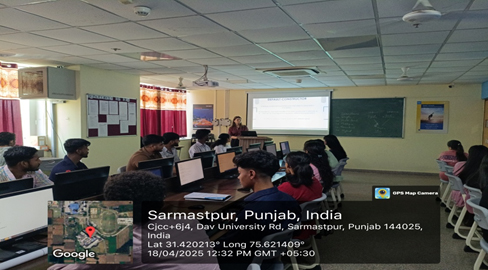
Collaborative Learning: Collaborative activities, such as group work on projects, allow students to learn from each other and develop teamwork skills.
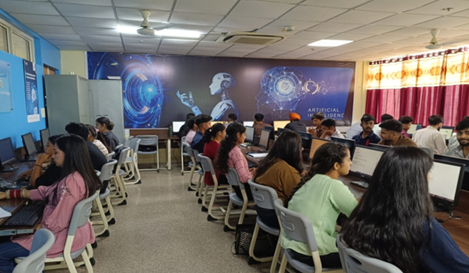
Visualization: Using visual representations to help students organize and understand complex concepts.
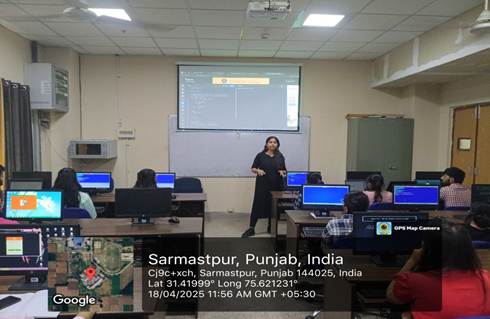
Activity Based learning: The department utilizes various activity based learning method in which the students participate rigorously and bring about efficient learning experiences. It is based on the idea that students learn best when they're actively involved in their learning. Activity based learning includes Mind map, Jigsaw, Role plays, Skits, Debates, Group Discussion, Participation in Seminars/ Workshops
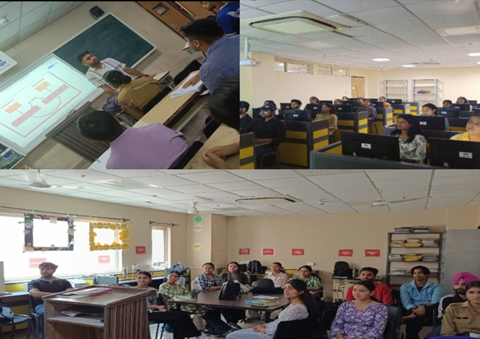
Training session with collaboration with ICT:
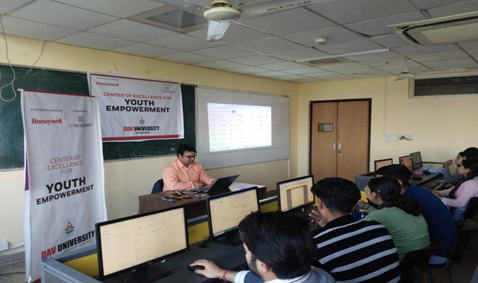
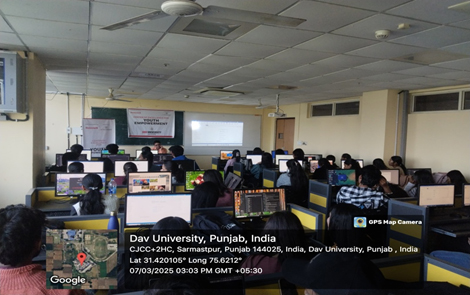
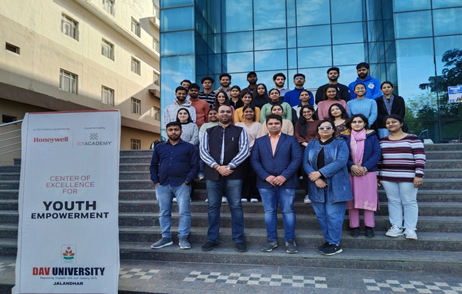
Problem-Based Learning: It is an active learning pedagogy where students learn by working through real-world, complex problems instead of passively receiving information from a lecture. It encourages critical thinking, collaboration, and self-directed learning to develop problem-solving skills applicable to real-life situations.
